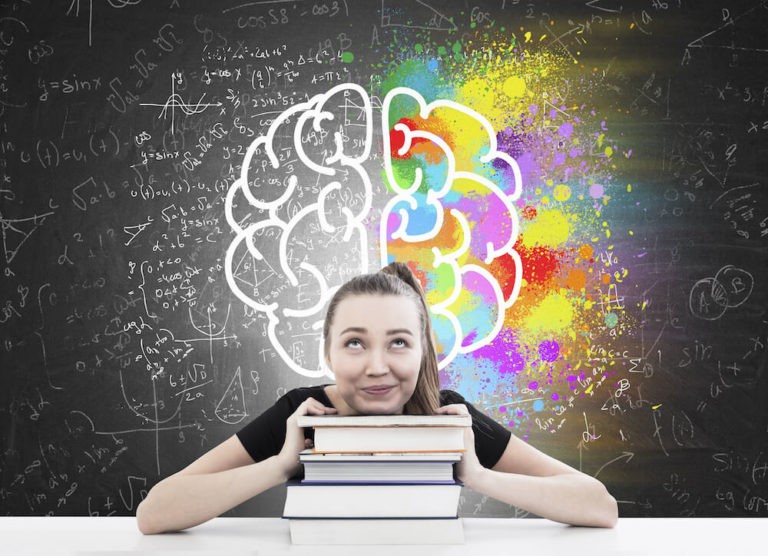What Social-Emotional Learning Benefits Do Students Gain?
Psychology is the study of the mind and how its functions affect human behaviors. Considering how employers, schools, and society in general aim to develop contributing members of society who consider the needs of others, it is logical that students in high school need to develop a fundamental understanding of human behavior.
In developing this understanding of human behaviors, students will build social-emotional understanding about themselves, peers, and other members of society. The study of psychology leads to heightened social-emotional understanding. That is, students will learn to understand their actions, strengthen the foundation for sound relationships, and develop empathy for others through learning about human behaviors and patterns.
Respect
By gaining a more inclusive understanding of human thoughts, behaviors, and emotions, students come to respect one another leading to more cohesiveness and a respect for diversity. Knowledge is power, and understanding human thoughts and behaviors is empowering. Simply put, psychology is the study of “us” through how “we” think and what “we” do. Through gaining an understanding of human behavior, students more thoroughly understand their past actions and are able to make more-informed future decisions. Students develop a more complete understanding of themselves and the potential “why” behind choices.
They might also identify with content relating to patterns of development and begin to realize they are not the only one struggling with issues. Studying stress, anxiety, depression, and other topics will allow students to approach their own struggles in a more positive, informed manner. Understanding psychology helps eliminate stigmas. The subject area opens the door for students to explore topics that they may be hesitant to discuss openly.
Communication and Understanding
In addition, students will develop a better understanding of others through the study of human behavior. Studying human behavior can also help students more clearly interpret nonverbal cues leading to increased understanding of others. The study of psychology is largely about the study of one’s self. Learning about one’s own behavior can be powerful. Hopefully, acquiring this skill set will lead to greater self-confidence and acceptance of oneself and others. Students learn to manage their own feelings while considering the feelings of others.
As students learn more about their behaviors and the behaviors of others, they are likely to become better communicators. They will learn to understand others more so as to communicate in a more sensitive and informed manner that values the perspective and experiences of others. Critical components of effective communication include respect and value. By having a strong understanding of human behavior, students are more likely to express themselves in a positive way that shows self-advocacy while showing empathy toward others.
Through developing an understanding of social skill acquisition, students can become self-advocates while understanding the need to protect others from injustice. The goal of human understanding is to develop a more cohesive society that values one another regardless of similarity or differences so as to limit cruelty, bias, and prejudice. Understanding of human behavior will lead to more compassion for others. Through the study of psychology, students can view situations through a different lens and learn from this varied perspective.
As more students advocate for one another and emotional intelligence increases among the student population, the school will develop a culture that is conducive to learning and exploration without fear of ridicule. Students will build the capacity to understand their own feelings and the feelings of others.
Having more students take a psychology class with a dynamic high school psychology teacher can have a dramatic effect on how students treat one another and adults. Students will develop the social skills necessary to discuss and reason while treating others with respect and dignity. Respect and dignity promote equity and social justice. Although these courses may only impact a few students initially, through learning and exponential outreach the impact can become dramatic over time.
What Academic Benefits Does a Psychology Class Provide?
Social-emotional learning and increased emotional intelligence are not the only benefits of coursework in psychology. In addition, students gain academic skills that help them to become more successful in school and the world beyond its doors. A further benefit is that having emotional intelligence and an understanding of mental health is critical to academic growth.
Psychology is a systematic approach to studying behavior and thought processes that relies heavily on the scientific method. Research is at the core of understanding human behavior. Psychology teaches students to approach and analyze research based on sound, unbiased data. Through applying these techniques, students will be able to weigh the merit of sources and make informed decisions. Students will need to defend sources and approach topics from a balanced approach. Although research must be objective, most of the results in psychology will expose that most areas of life are not black and white, but rather somewhat gray. Students will learn to analyze and interpret findings leading to an increased knowledge base.
As students research or simply debate course content, a perfect opportunity for rich discussion occurs. Psychology is a course that is best applied to daily life: students can discuss and overcome problems like bullying and wanting to fit in. Therefore, they can become agents of change.
Through this dialogue and opportunities for group research projects, students develop critical thinking skills that are necessary for strategic thought processes. Further, students will become better communicators and self-confidence will flourish. Also, students will have to become good listeners to actively participate in these rich class discussions. All of the skills related to human behavior help students excel not only in school, but also in the workforce; these collaborative soft skills are crucial for success.
Leadership skills and styles are often studied in a psychology class. As students work collaboratively together, they can self-identify and gain insight regarding leadership potential. Psychology classes can help refine future leaders who understand collaboration and empathy.
Finally, students may benefit simply because they find the content fascinating and enjoyable. Students read more and think about content more if the subject is of interest. Reading, writing, and scientific thought processes might improve because students become invested in the study of psychology.




